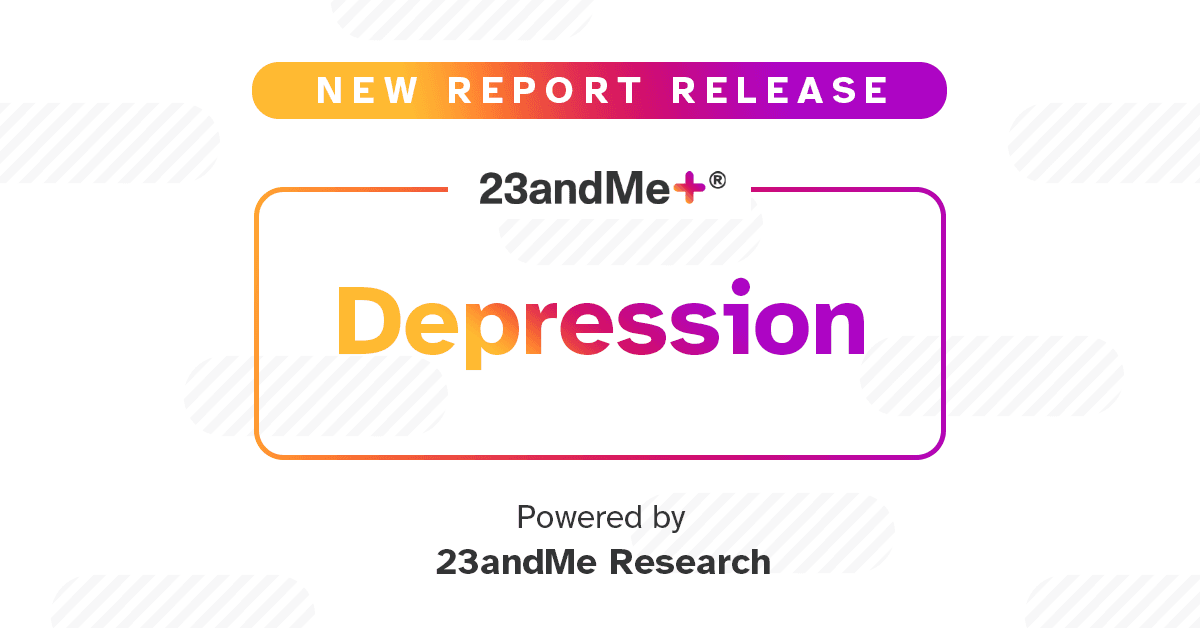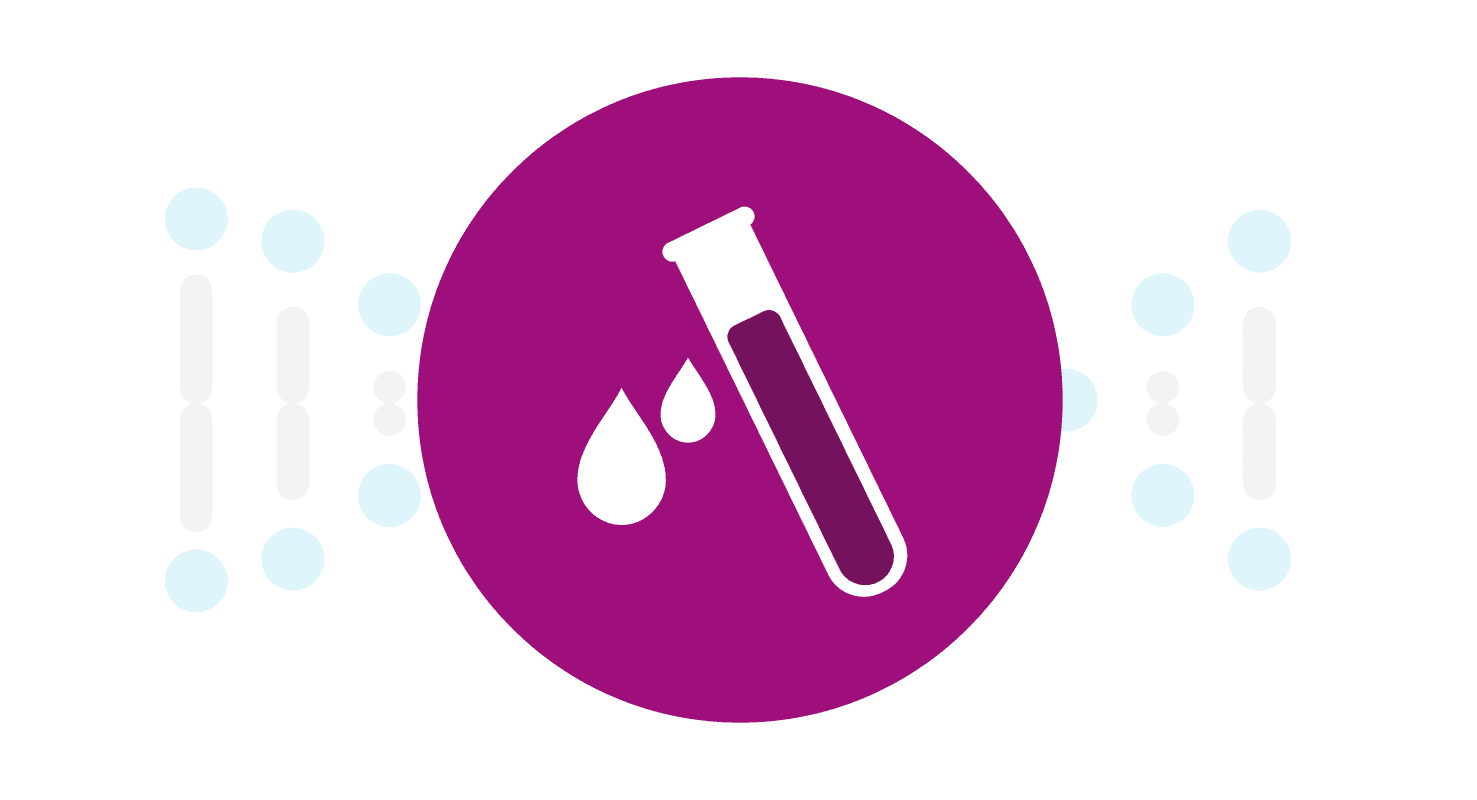This week, we released a new report powered by 23andMe research on depression that is available for 23andMe+ members.
About the report
Depression is an all-too-common mental health condition that affects millions of people worldwide. In the United States alone, it’s estimated that one in five people will be diagnosed with some form of depression in their lifetime.
23andMe’s new Depression Report is powered by data from people who have consented to participate in 23andMe research. The report uses machine learning techniques to estimate an individual’s likelihood of being diagnosed with depression.
The estimate uses a statistical model that includes thousands of genetic markers and information on an individual’s ethnicity and birth sex. You can learn more about the science and methodology behind our new report in this white paper.
Note that 23andMe’s genetic health report on depression can provide users with helpful information on their estimated genetic likelihood of being diagnosed with the condition, but it is not a substitute for clinical diagnosis and treatment.
If you or someone you know is in crisis, don’t ignore it, there is help. You can call or text 988 in the U.S. or find a helpline in your area.
Here are some additional resources for you to find the help you or a friend or family member might need. Remember you are not alone, and there are people who can help you get the support you need. It’s OK to ask for assistance.
• 988 Suicide and Crisis Lifeline — formerly known as the National Suicide Prevention Lifeline, 988 provides free and confidential emotional support to people in suicidal crisis or emotional distress 24 hours a day, 7 days a week across the United States. The Lifeline is comprised of a national network of over 200 local crisis centers, combining custom local care and resources with national standards and best practices. They can provide support or connect you with local resources. Either call or text 988, or you can call 1-888-628-9454.
• Crisis Text Line — The Crisis Text Line is another free resource that’s available 24/7. If you’re not comfortable talking on the phone, you can text with a trained crisis counselor. To get started, text HOME to 741741.
• National Alliance on Mental Illness — The National Alliance on Mental Illness (NAMI) is an organization that provides education, support, and advocacy. Their helpline is available Monday through Friday, 10am to 8pm ET, at 1-800-950-NAMI (6264). They also have a wealth of resources on their website, including information on depression and suicide.
• Therapy — Talking to a therapist can help if you’re struggling. An experienced therapist can help you navigate and find the best approaches to treating depression. Even if you don’t have insurance there are still options available, such as community mental health centers or sliding-scale therapy.
Remember, it’s okay to reach out for help. You don’t have to go through this alone. There are people who care about you and want to help you get through this.
What is depression?
Depression itself is not just about feeling sad or down. Those feelings are experienced by everyone. Depression is a more persistent and sometimes chronic condition that manifests itself in people differently.
There are several factors that contribute to whether someone develops depression. Genetics can play a role, but so do other factors. Some of those other factors include trauma or other life events, as well as environmental factors and/or chemical imbalances in the brain. Studies have shown that stress, poor diet, lack of exercise, and substance use can also contribute significantly to depression. In addition, other factors like discrimination due to race, sexual orientation, gender expression, and identity also play a role in depression, as does social isolation.
Symptoms of depression often include feelings of sadness, hopelessness, and or worthlessness. These feelings might also be accompanied by a lack of interest in previously enjoyable activities, a lack of energy, or difficulty sleeping or concentrating. Some people with depression may also experience unexplained changes in appetite, aches, and pains, or issues with their digestive system. And in some cases, people with depression can have thoughts of harming themselves or suicide.
With the right resources and support, individuals dealing with depression can manage their symptoms and lead fulfilling lives.
Genetic factors
While it is but one of many factors that contribute to a person’s likelihood of developing depression, genetics can help explain how and why some people develop depression.
Depression is known to run in families, and it is also highly genetically correlated with anxiety. Many people are diagnosed with both depression and anxiety. Depression is also more common among females than among males.†
Research studies — including work done by, and with, 23andMe scientists — have identified thousands of different genetic variants associated with depression. Some of these are in genes involved in neurotransmission and response to stimuli in the central nervous system. A few other variants have been found in genes involved in a neural growth regulator active in the hypothalamus. The hypothalamus is an area of the brain that’s been linked to depression in the past.
Together, these studies are helping scientists better understand how and why some people develop depression and others don’t. These insights may also help efforts to treat and prevent the disease.
Find Out More
23andMe+ members can click here if they wish to view their report.
Current 23andMe Health + Ancestry Service customers on the current genotyping chip can receive this report and 35+ other reports by joining 23andMe+ from within their accounts. Learn more here.
Not a 23andMe+ customer yet? Learn more about what 23andMe has to offer here.
Within this blog post and the Depression Report, we use the word “male” to refer to people whose birth sex is male and “female” to refer to people whose birth sex is female. However, we recognize that being categorized by birth sex may be an uncomfortable experience for some people, and we do not mean to delegitimize anyone’s gender identity. Learn more about why we made this decision in this help article.
Read More Posts on Depression Research
- A First Glimpse of a New Cohort to Study Depression and Bipolar Disorder
- Study Offers More Insights into the Genetics of Depression
- Study Finds New Genetic Associations for Depression
- Better Treatment and Care Needed for People with Depression




